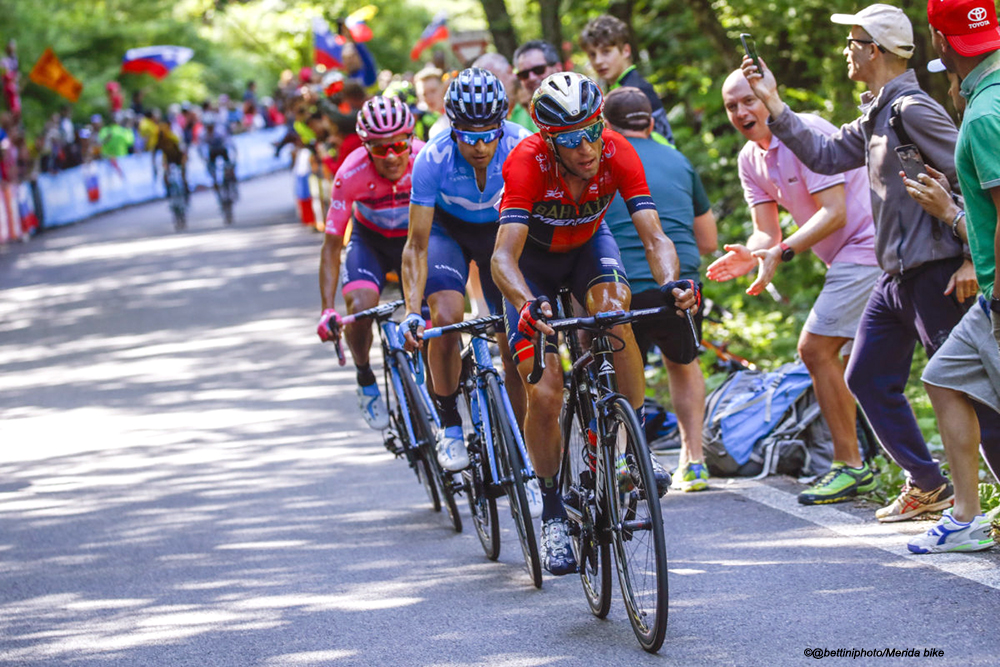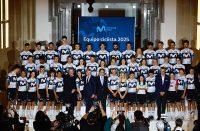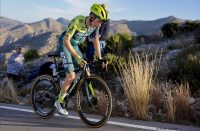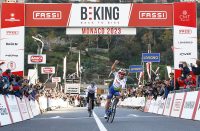The countdown to the official restart of the 2020 season has begun with all but a month until the Vuelta a Burgos, the first race for Trek-Segafredo. Since the UCI announced the new racing calendar, the team’s management, performance group, and directors’ work to reorganize races, training, camps, and schedules has been hectic.
“New dates for the most important events, Grand Tours and Classics first and foremost, was what all cycling stakeholders wanted,” said Luca Guercilena, Team Manager of Trek-Segafredo. “Now we have to outline the way to prepare the team in the best way. It’s not easy with a compressed calendar, with three racing programs – even four – running simultaneously most of the time and also with few intercontinental transfers. But we are confident and satisfied with the work we are doing.
“We have 28 riders on the men’s roster, and that is enough in an ordinary season, but it may be too limited for an extraordinary one. We are making an effort to select the right riders to achieve our goals, providing more scenarios in case of unforeseen events. The biggest difficulty is that significant choices must be made today if we want the riders at top condition, and this leaves very little room for changes, given the proximity of the races.”
TRAINING CAMPS – ISOLA 2000 AND PASSO SAN PELLEGRINO
The first important decisions refer to the most demanding events in terms of planning, the Grand Tours. And the biggest concern is the preparation. Trek-Segafredo has planned two altitude training camps – one in France and one in Italy. Both camps will follow the strict UCI in full compliance with the regulations of each country to minimize the risks of the Covid-19 pandemic.
In France, part of the team will train in Isola 2000, the Provence-Alpes-Côte d’Azur region, which is close to the Italian border, from July 12-28. Performance Manager Josu Larrazabal and Sports Directors Steven De Jongh and Kim Andersen will oversee eight riders – Bauke Mollema, Richie Porte, Jasper Stuyven, Julien Bernard, Niklas Eg, Alex Kirsch, Toms Skujins and Edward Theuns – who will be attending the camp on variable dates.
From July 10-25, another group will be based in Italy in the Dolomites, at Passo San Pellegrino. The training program will be led by trainer Paolo Slongo and involve seven riders: Vincenzo Nibali, Giulio Ciccone, Gianluca Brambilla, Nicola Conci, Jacopo Mosca, Antonio Nibali, and Pieter Weening. Unlike the training camp in France, all seven riders will stay the full period.
THE ROSTERS FOR TOUR DE FRANCE AND GIRO D’ITALIA
“We are about two months away from the start of the Tour de France, three months until the Giro d’Italia, and four to the Vuelta a España,” added Guercilena. “In a normal situation, we would have indicative lists of riders who could be at the start, and we would have a roster of 10-12 riders to select from, also depending on their performance on the road. Not this year.
“We’ve drawn up a roster of nine riders for each Grand Tour. The reference group for the Tour will train at Isola 2000, except for Julien Bernard. For the Giro, the group will be at Passo San Pellegrino. The Vuelta is the only Grand Tour where we have little room to make decisions. The only certainty is that Mollema is the captain,” continued Guercilena.
In Nice, for the start of the Grande Boucle, Trek-Segafredo will field eight of the following nine riders: Mollema, Porte, Stuyven, Eg, Kirsch, Skujins, Theuns, and two who are not attending the France training camp, World Champion Mads Pedersen, and Kenny Elissonde.
At the Corsa Rosa, now confirmed to start in Sicily, the selection will be among the seven riders training in the Dolomites – Vincenzo Nibali, Ciccone, Brambilla, Conci, Mosca, Antonio Nibali, and Weening – plus Julien Bernard and Koen de Kort.

“These confirmations give light on two fundamental events of the men’s season, but the work for the rest of the calendar also continues at a fast pace. We’re finalizing the detailed calendar for both teams and soon will announce the first steps of the women’s season, including their presence in the training camps and the most important races,” concluded Guercilena.




